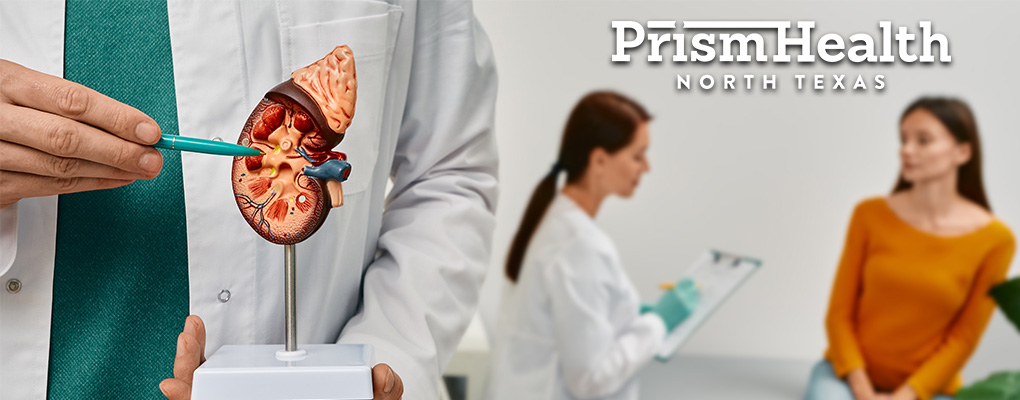
Kidney Stones: What They Are and How to Prevent Them
Published: 02-06-2023 | 1 MIN READ | Author: Prism Health North Texas
Kidney stone-related health problems are a growing issue for Americans. In the late 1970s, 3.8% of Americans reported problems with kidney stones and that number rose to 8.8% in the late 2000s. Although many factors can contribute to the development of kidney stones, the most common cause could be due to lifestyle choices.
What are they?
Kidney stones develop when there are too many chemicals in your urine. There are four types of kidney stones that determine what chemical there is too much of in your urine: calcium oxalate, uric acid, struvite, and cystine.
The stones form in your kidney, detach, travel down the urinary tract, and get expelled with your urine. When you pass a kidney stone, it’s essential to let your doctor examine it to determine what it’s made of and what can be done to prevent them.
What causes them?
There are many factors that can increase your risk of developing kidney stones:
- Not drinking enough water.
- Eating foods with too much protein, sodium, or sugar.
- Being overweight.
- Having gastric bypass surgery.
- Inflammatory bowel disease.
- Family history and certain medical conditions.
- Some supplements and medications.
How do I know I have a kidney stone?
Sharp pain is a common indicator that you may have a kidney stone. The pain can fluctuate in intensity and can be felt in several places including:
- The side or back (just below the ribs).
- The lower abdomen and groin area.
- Pain or burning when urinating.
The kidney stone is moving through your body, so having pain that seems to change locations is a big clue that you may have a kidney stone.
Other symptoms may include:
- Pink, brown, or red urine.
- Urine that is cloudy or foul-smelling.
- Needing to urinate persistently in small amounts.
- Nausea and vomiting.
- If the stone causes an infection, you may have a fever and chills.
How can I prevent them?
If family history or medical conditions are not a factor, you can prevent kidney stones with some lifestyle changes:
- Stay hydrated.
- Avoid activities that will cause excessive sweating.
- Eat low-fat milk, cheese, yogurt, and other calcium-rich foods.
- Eat less processed, canned, and other high-sodium foods.
- Eat less oxalate-rich foods such as coffee, chocolate, spinach, peanuts, sweet potatoes, and soy products.
See a doctor if you feel severe pain, have nausea and vomiting, fever, chills, blood in your urine, or have difficulty urinating.
Sources:



